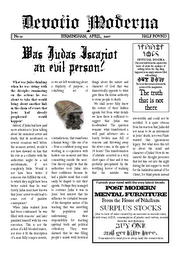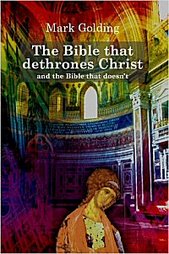Love does not exist except in the imagination. How we define it and then expect others to deliver that definition is in the realm of the imagination. It has never existed at all. No one can define what it is exactly, except poets and stargazers using their romantic and whimsical lyricism. Such philosophical muses and mysticism that relies on bucket loads of abstract words to define other abstract words is what professional theorists, like Foucault, use as part of their philosophical construction of meaning.
In a pivotal phrase in a discourse on origins of things like power and knowledge from Power/Knowledge p131 he says for example:
‘Truth isn’t outside power. …Truth is a thing of this world; it is produced only by virtue of multiple forms of constraint. And it induces regular effects of power. Each society has its regime of truth, its ‘general politics’ of truth; that is, the types of discourse which it accepts and makes function as true, the mechanisms and instances which enable one to distinguish true and false statements, the means by which each is sanctioned…the status of those who are charged with saying what counts as true.”
Using abstract words like 'outside power' to argue perhaps that human consciousness is not subject to anything outside of its own imagination may seem an authoritative argument for the origin of truth, as part of an Open University module, but in reality it is nothing but an atheistic discourse for atheists, for people who have 'internalised' reality using a set of clapped out hand-me-downs from other people who waffled eloquently.
For example, take this line from one of Socrates many muses:
“When desire, having rejected reason and over powered judgement which leads to right, is set in the direction of the pleasure which beauty can inspire, and when again under the influence of its kindred desires it is moved with violent motion towards the beauty of corporeal forms, it acquires a surname from this very violent motion, and is called love.”
How do we translate these little expression of something that does not exist? Is he saying that love derives its power from desire that should not listen to reason or judgement and is therefore right? The premise he uses is that desire exists in some quantifiable form and the curious logic that follows leads to the conclusion that desire is right if the motion is violent enough to expel reason and judgement. So, if I was to love like this I would be right if I rejected reason and judgement and let desire, inspired by beauty, to move me violently to set myself in the direction of pleasure? Isn’t this a recipe for rape? Whichever way you look at it, this pleasure centred grasping of love is about as reasonable as imagining laws to justify carpet bombing a city full of innocent people because their ideology and religion is obnoxious to you. The reason it is laden with unreason is because the logic Socrates used in this one sentence to define love is totally bound up in trying to understand something that does not reveal itself through things like beauty, desire, corporeal forms, violent motion.
All these things are not going to help people to understand love. If beauty is the essential inspiration for the experience of love, for the transition from desire to love, then what of ugliness? This is part of nature too. Ugliness also exists in the world and in many guises, in hatred, in pride, in jealousy, in selfishness. Do these also inspire Socrates to love, or are they expunged from his version of reality? And if they are expunged, then one must expunge the people who carry and show these traits because it is they who bring these things into the world. So his love will exclude a lot of people and if everyone excluded a lot of people on these grounds, love would not spread very far. In fact love wouldn’t spread at all. Unless of course beauty is in all things, in attractive looking bodies, in attractive looking material, in attractive looking dust, as well as in things like murder, treason, hatred, jealousy, deceit, selfishness, pride and anger. But he talks of ‘beauty’ that gives ‘pleasure’ that is born out of ‘desire’ and so to avoid the paradox, the double speak, the confusion that threw Adam when God said one thing and the Serpent said another, Socrates would need also to talk of ‘murder’ that gives ‘pleasure’ that is born out of ‘desire’. From here, he would have great difficulty to show whether love was good or not.
The words that Socrates used, if you place them in any order in his statement about love, have no meaning other than the ones trapped in his mind at the moment of writing, which for students that treat his writings as some kind of canon in the development of thought alarmingly equates to the emperor's new clothes. Lecturers throughout the world who teach on the subject of philosophy and reason often give academic status to stargazers like this one. Stargazers' imagined truths about love, who for centuries have wrestled with its constraints and demands as if it were a God, has produced a mega-narrative that teachers quote from as if it were the absolute canon, a foolproof benchmark for social development and political science. It is but the fantasy of people devoid of God's Spirit.
If Socrates’ writings are construed by academics as some kind of benchmark in the development of philosophical enquiry into the nature of things that their students will find edifying I’m afraid they’re going to be more confused than he was. The methodology behind reinforcing ideas by cross referencing within the narrow field of a canonised selection of scripture emanating from one or two people’s imagination based on quantity is how indoctrination is mastered. The Jews had indoctrinated themselves with ideas about God and love that were not only entirely at odds with His Son but portrayed a cruel and unmerciful God of their imagination.
When Jesus came on the scene and started talking about the love of God He was immediately branded a heretic and a brigand. The reason for a wholesale rejection of His teaching about love that culminated in His humiliation was not only caused by the sin of corporate unbelief but by centuries of indoctrination by cross referencing within a canon of scripture deemed unquestionably authoritative as a definition of love and therefore of (God).
For only God can communicate love. The human race is incapable of communicating something that exists only as an idea in the imagination as 'they' clearly demonstrated when they hammered nails into His healing hands that had touched those they cursed and into His feet that had trodden hundreds of miles with messages of love and forgiveness.
Neither have I experienced love from those who confess it toward me, both inside and outside the church, for they too are incapable, as I am, to express something for which we have no pattern or blueprint, no form or definition, no example or standard by which to measure its height, breadth and depth other than in the life of a man who came to show it in all its fullness - Jesus Christ. No wonder 'they' wanted to kill Him. He was a light among men that exposed the substratum of lies upon which they had built their cultural edifices.
But I know the love of Christ and it is a sad thing to know Him fully in a world that does not know anything at all about love. It does not know because it worships the scriptures of men. Atheists worship their sages and intellectuals, Christians their Bible, Muslims their Koran, but few of them know the love of Christ.
"Father, I want those you have given me to be with me where I am, and to see my glory, the glory you have given me because you loved me before the creation of the world" Jesus prayed.
In this short age of man love is as elusive as meaning because the words that cultures have used for eons have no authority to identify what is truth; imagination has no authority other than to do good and do evil in equal measure.
Read Jesus' words, I implore you, before you die in your sin.






No comments:
Post a Comment